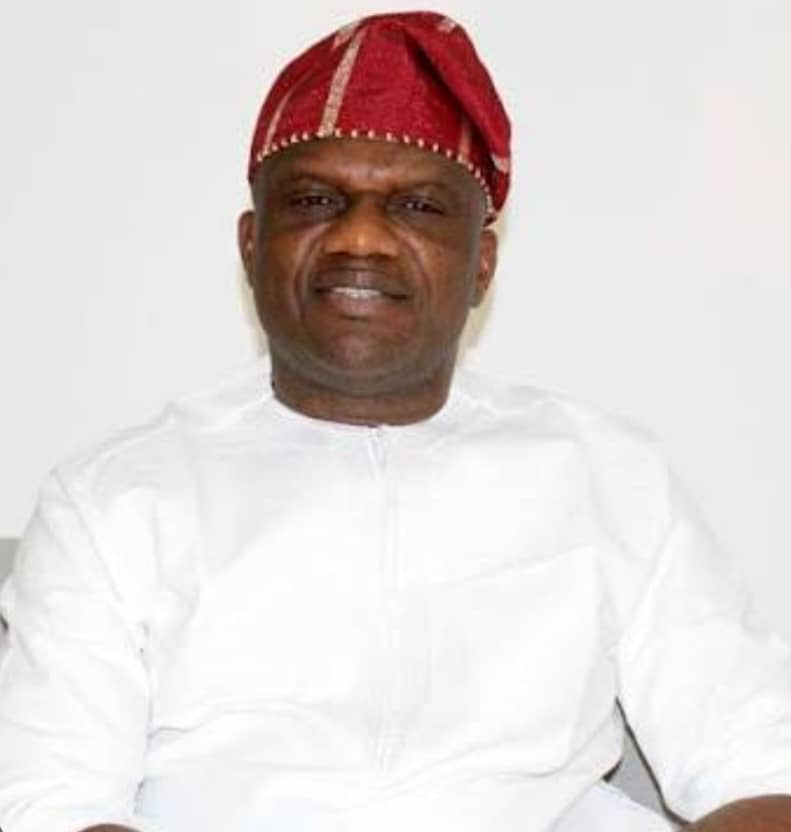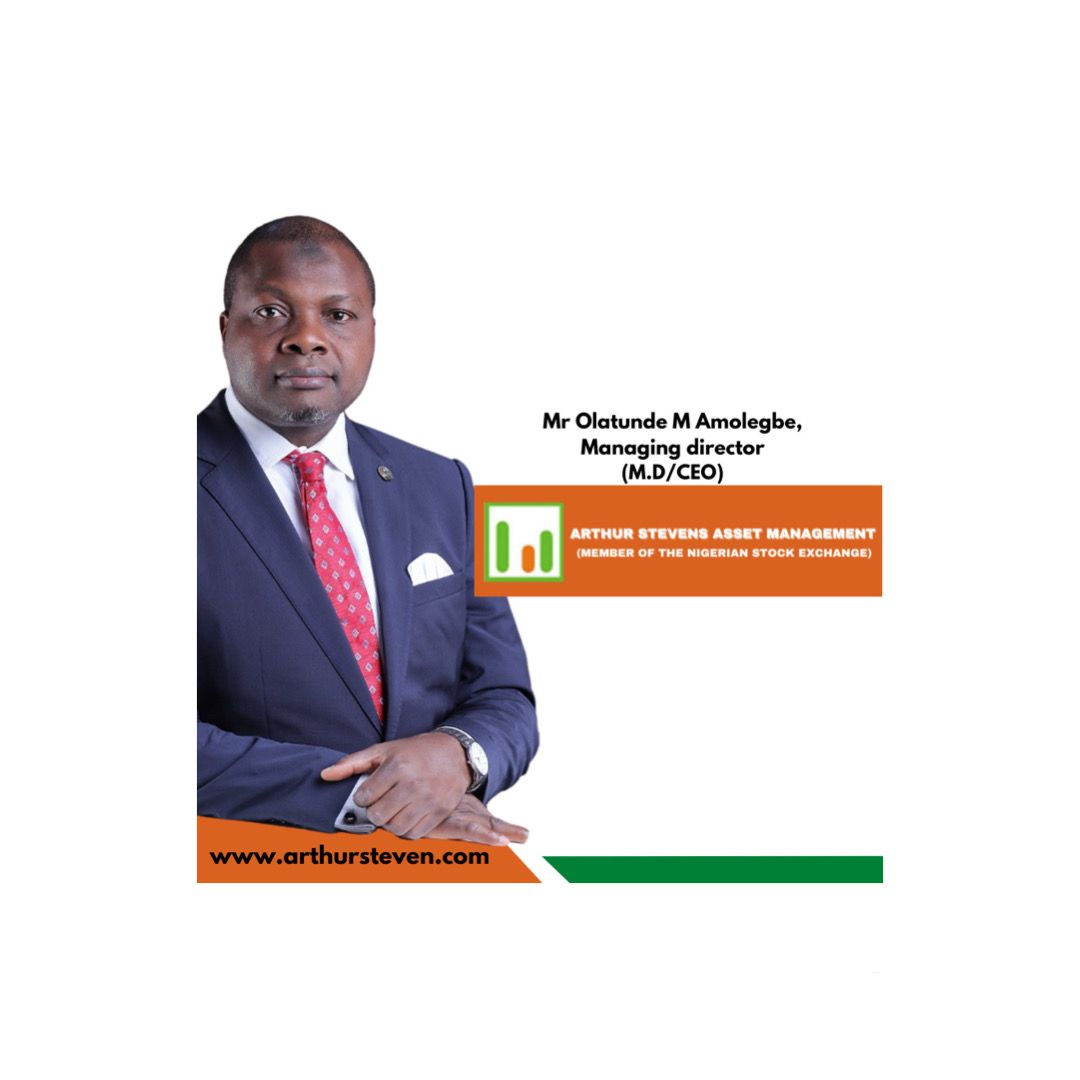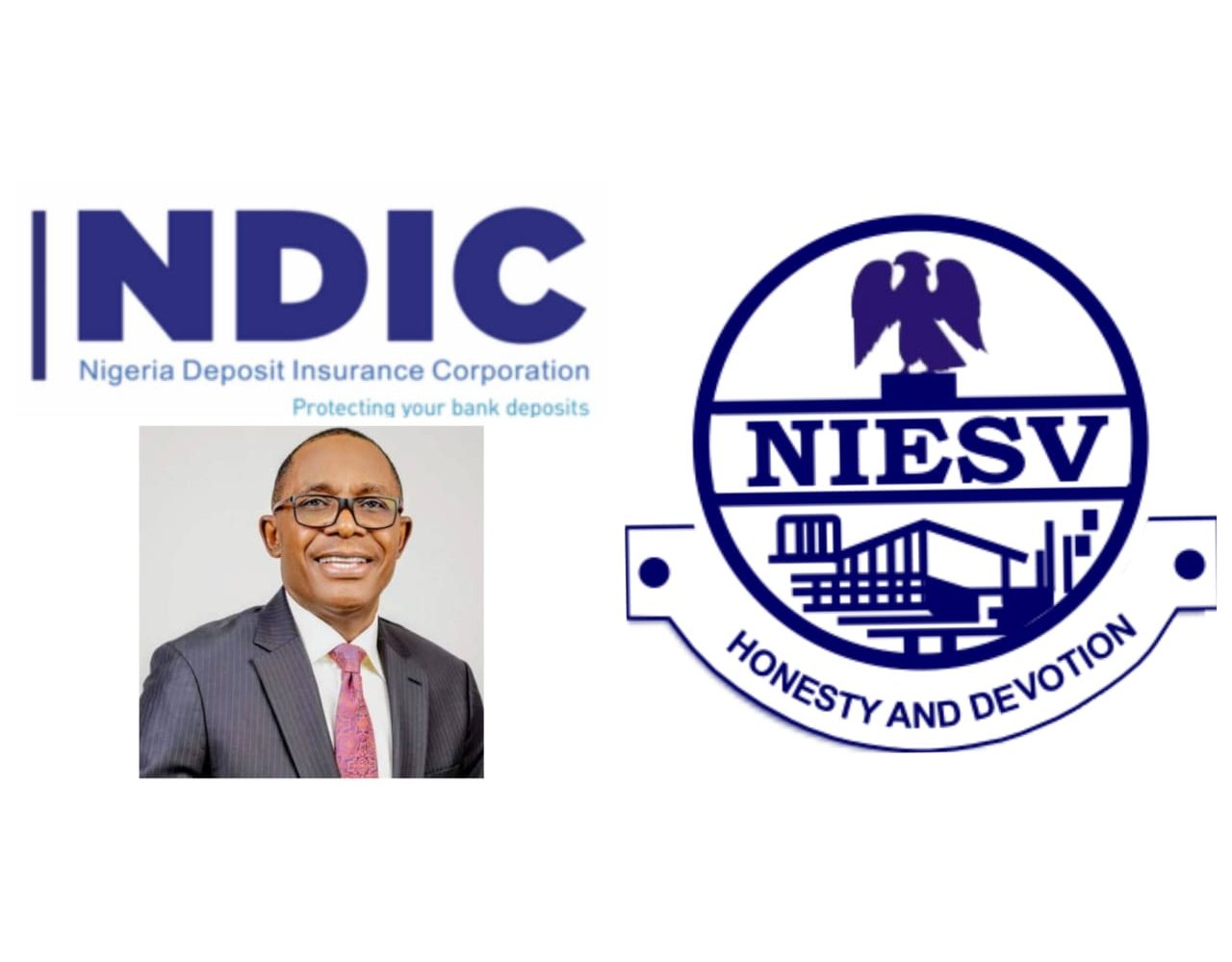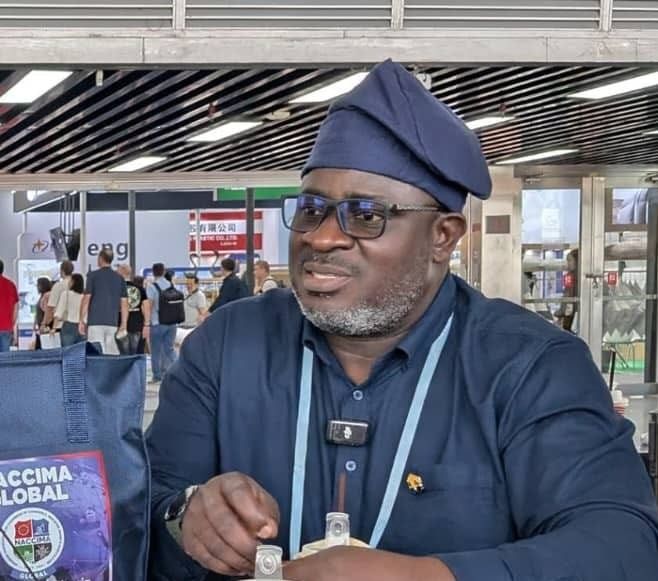To Recover Lost Govt Revenue From FTZs Operations – MAN Sectorial Group Calls For Special Task Force





Amaka Obiefuna
Nigerian Exchange Limited (NGX) has introduced Commercial Paper (CP) listings, following approval from the Securities and Exchange Commission, marking another significant expansion of its product suite in a year defined by accelerated innovation. This development deepens Nigeria’s short-term debt market and reinforces NGX’s role as a versatile hub for capital formation.
The new listing window enables corporates and issuers to list and trade both conventional and non-interest commercial papers directly on the Exchange, providing investors with enhanced visibility, increased transparency and improved liquidity. It also advances NGX’s broader strategy of diversifying its offerings and strengthening the architecture of the domestic capital market.
Commenting on the launch, Temi Popoola, Group Managing Director and CEO of NGX Group, commended the Securities and Exchange Commission for its commitment to enabling market advancement and fostering healthy competition across the ecosystem. He stated: “The introduction of Commercial Paper listings is a pivotal step in our strategy to position NGX as a comprehensive capital-markets infrastructure that accelerates capital formation across Africa. As we continue strengthening the foundations of a transparent, technology-driven and inclusive marketplace, our focus remains on building a system that supports sustainable growth, enhances market resilience and unlocks new opportunities for the broader economy.”
Commercial Papers (CPs) are short-term, unsecured debt instruments issued by corporates to finance working capital needs and other short-term obligations. Typically maturing within 270 days, CPs are issued at a discount and redeemed at face value upon maturity offering corporates a cost-effective alternative to bank loans and providing investors with attractive short-term investment opportunities.
Also speaking on the development, Jude Chiemeka, CEO, Nigerian Exchange Limited, stated: “The introduction of Commercial Paper listings represents a major advancement in our mission to provide a full spectrum of capital-raising solutions for businesses. This platform enhances transparency in the debt market and supports corporates seeking efficient access to funding outside traditional banking channels, while offering investors credible short-term investment options. NGX will continue to engage with corporates, intermediaries, and investors to deepen liquidity and participation in Nigeria’s debt capital market.”
Olufemi Shobanjo, CEO of NGX Regulation Limited, added that strong oversight will remain central as the market evolves. “Our priority is to maintain high standards of disclosure, promote accountability and safeguard investor confidence while contributing to market deepening,” he emphasised.
With the inclusion of commercial papers, NGX now offers an integrated environment spanning equities, fixed income, ETFs, derivatives and short-term debt advancing its ambition to be a one-stop marketplace for capital across asset classes.
About Nigerian Exchange Limited (NGX)
Nigerian Exchange Limited (NGX), a wholly owned subsidiary of the Nigerian Exchange Group (NGX Group), is a leading listing and trading venue in Africa with its history dating back to 1960. It is an open, professional, and vibrant exchange, connecting Nigeria, Africa, and the world.
NGX is a multi-asset exchange providing a home to the best of African enterprises listed on our Premium, Main, and Growth Boards; diverse fixed income securities; Exchange Traded Products (ETPs); Mutual and other investment funds. Through our vibrant secondary market, we provide domestic and international investors access to these securities. In addition, NGX provides licensing services, market data solutions, ancillary technology services, and more in our quest to be Africa’s preferred exchange hub.
.jpg)
The Manufacturers Association of Nigeria (MAN) has welcomed the decision of the Monetary Policy Committee (MPC) of the Central Bank of Nigeria (CBN) to maintain the benchmark interest rate at 27% and adjust the standing facilities corridor.
However, the association urged the CBN to consider a downward review of the interest rate to reduce the high borrowing costs and incentivize long-term investments in the manufacturing sector.
In its position paper on the MPC meeting, MAN noted that despite the CBN’s efforts to stabilise the economy and ease inflationary pressures, the high lending rates of 30-37% remain a significant challenge to manufacturers.
The association emphasised that persistent high lending rates will limit access to affordable credit for manufacturers, especially small and medium-sized enterprises.
MAN also called on the government to strengthen fiscal discipline, invest in infrastructure, and implement complementary fiscal measures that support industrial development and promote structural reforms.
The association urged the government to resolve the lingering insecurity issues in the country, particularly in agricultural and industrial zones, to stabilise food supply and raw material inputs.
MAN made several recommendations, including a downward review of interest rates, additional policy instruments to facilitate credit flow to the real sector, and collaboration between the government and the CBN to stabilise the naira and manage external risks.
The association reiterated its commitment to working with the CBN and the government to promote economic growth and development, and urged the authorities to seize the opportunity to promote credit-led growth, especially in productive sectors, while managing risks through fiscal discipline and structural reforms.
 SanlamAllianz Nigeria’s website/portal, www.sanlamallianz.com.ng, has been adjudged winner of the NiRA .NG Awards 2025.
SanlamAllianz Nigeria’s website/portal, www.sanlamallianz.com.ng, has been adjudged winner of the NiRA .NG Awards 2025.
Nigeria Internet Registration Association (NiRA), is the registry for .ng Internet Domain Names and maintains the database of names registered in the .ng country code Top Level Domain. NiRA is a Not-for-Profit, Non-Governmental Self-Regulatory body established by the order of the President of Federal Republic of Nigeria to the Internet Community to manage Nigeria’s Country Code Top Level Domain.
A statement by Bankole Banjo, Marketing and Corporate Communications Manager, said .ng Awards celebrate the achievements and innovation of Nigerian internet initiatives and aims to showcase Nigerian businesses, individuals, charities, public and private sector organisations that help to make the Internet a more secure, open, accessible, and rewarding experience for all.
According to the .ng awards website, the criteria for the awards include: Local Content, User Experience, Functionality, Website Relevance and Website Dynamism.

Commenting on the awards, Chris Ekwonwa, Group Head, Strategy, Marketing and Customer Relations, SanlamAllianz Nigeria, said “this award is another testament to the overall quality of our website. Last year, we were finalists at this same award as Sanlam Nigeria, now as SanlamAllianz Nigeria, following our JV with Allianz, we finally brought this home. This reinforces our rebrand theme of two giants coming together; two forces joining forces. Indeed with this award, we unequivocally reaffirm our enhanced technical and innovation capabilities to deliver a delightful experience to our customers and prospects who interact with us across all our touch points.”
In a further testament to the increased strength of the company’s digital exertions, days earlier, Netcore/Infytel, a leading marketing services firm with strength across automated email marketing, adjudged SanlamAllianz as the most innovative user of its platform. “When it comes to digital adoption, we are clearly one of the leading lights in our industry ,” said Bankole Banjo, Marketing and Corporate Communications Manager at SanlamAllianz Nigeria.
“From our easy-to-use customer app called SanlamAllianz Connect, to the agents’ app which allows for seamless paperless sales by our over 5000-man field force, we have shown the industry that innovation is not just a core value for us, but a way of life”, he added.
Recall that Sanlam, Africa’s biggest non-banking financial services firm and Allianz, easily the world’s most recogniseable insurance brand executed a JV across 28 countries on the continent to form SanlamAllianz.
The merger has seen the giants become the clear leader in their industry in Africa with strong commitments to be top two in every market in which they operate. Consummated in Nigeria as SanlamAllianz Nigeria in June 2025, the brand immediately embarked on a rebrand campaign which saw it dominate headlines to the delight of industry watchers.


Mr. Olatunde Amolegbe, Managing Director/CEO, Arthur Stevens Asset Management Limited will deliver the Keynote Paper at the Business Journal Annual Lecture 2025 scheduled for Tuesday, December 16, 2025 at Oriental Hotel, Lekki Road, Victoria Island, Lagos. Time is 10.00 am prompt.
The THEME of the lecture is: AI & Digital Economy: Projecting the Future of Economic Growth in Nigeria.
Mr. Olatunde Amolegbe, the immediate past President and Chairman of Council of the Chartered Institute of Stockbrokers (CIS) is a distinguished leader in the financial sector.
He is the MD/CEO of Arthur Stevens Asset Management Limited with extensive expertise in investment banking, corporate finance, asset management, securities trading and investment research.
His career spans reputable organisations such as IMB Securities Plc, Securities Solutions Limited and FCMB Pension Managers.
An alumnus of the University of Ilorin and the University of Liverpool, he holds advanced degrees in Business and Corporate Finance.
He has also served the Institute in key leadership roles, exemplifying his commitment to industry excellence.
Commenting, Prince Cookey, the Publisher/Editor-in-Chief of Business Journal Media Group said:
“The choice of Mr. Olatunde Amolegbe as Keynote Speaker for the Business Journal Annual Lecture 2025 is based on his enviable track record of financial industry leadership and thought process on current and emerging issues in the Nigerian economy. He represents a new generation of market experts driven by passion and commitment for sustainable growth of the economy despite challenges of the moment.
In that respect, we expect a robust conversation on the intricate balance between AI and digitalisation in national economies and corporate boardrooms.”
The lecture would be chaired by Professor Anthony Kila, Pro-Chancellor, Michael & Cecilia Ibru University.
Members of the Panel include Mr. Garba Kurfi, Managing Director/CEO, APT Securities and Funds Limited; Mr. Nelson Akerele, Managing Director/CEO, Enterprise Life Assurance Nigeria Limited and Dr. Abidemi Adegboye, Department of Economics, University of Lagos (UNILAG).

The Managing Director/ Chief Executive Officer (NDIC), Mr. Thompson Sunday, has called on the Nigerian Institution of Estate Surveyors & Valuers (NIESV) to strengthen strategic collaboration with the Corporation as the NDIC relies on NIESV members for accurate and credible valuation of assets of failed banks, which is critical for effective liquidation and payment of depositors.
A statement signed by the Head, Communication & Public Affairs Department, Hawwau Gambo, informed that the MD/CE made the call during a courtesy visit by the President/Chairman of Council of the NIESV, Dr. Victor Alonge, and members of his executive team to the NDIC Head Office, Abuja.
The NDIC Chief Executive explained that the Corporation relies on precise and credible valuation reports during the liquidation of failed banks to determine the true worth of assets, which enables their sale at the best possible value.
Sunday further noted that proceeds from the sale of these assets are applied toward the payment of depositors’ balances above the insured amount, making accuracy and professionalism in valuation essential to protecting depositor funds.
He emphasised that NIESV’s professionalism therefore contributes directly to financial stability and depositor protection by ensuring transparency, fairness, and value-for-money in the disposal of assets and the recovery process.
While calling on the leadership of the Institution to uphold the highest ethical standards and guard against insider abuse, the NDIC Chief Executive added that the Corporation is further strengthening its internal processes, including the development of a comprehensive Asset Management Policy to guide asset identification and documentation, valuation procedures, disposal strategies and transparency and accountability in recoveries.
The NDIC Chief Executive emphasised the need for stronger collaboration between both institutions, noting that the Corporation welcomes opportunities for joint training and knowledge exchange between NDIC staff and NIESV professionals, particularly in emerging valuation methodologies, asset management, and sustainable valuation practices.
President/Chairman of Council of the NIESV, Dr. Victor Alonge reaffirmed the Institution’s commitment to professionalism and integrity.
He explained that NIESV was established by an Act of Parliament and maintains strict disciplinary procedures to sanction any member found to be unethical or unprofessional. He reaffirmed the Institution’s commitment to sustained cooperation and technical support to the NDIC, noting that the partnership remains vital to enhancing service delivery and strengthening public confidence in the banking system.
The courtesy visit underscored the shared commitment of both institutions to deepen collaboration, enhance professional standards, and strengthen the bank liquidation process in Nigeria for the overall stability of the financial system




Shell Nigeria Exploration and Production Company Ltd (SNEPCo) last week won an award for “Promotion of Good health/Wellbeing” at The SERAS Africa Sustainability Awards 2025 in Lagos at the weekend.
The recognition came as the latest outreach of the Nigerian National Petroleum Company Limited (NNPC)/SNEPCo Vision First initiative held in Asaba, Delta State November 17 – 22, reaching a total of 6,538 individuals since the inception of the programme in 2022.
The SERAs Africa Sustainability Awards, which began in 2007, recognise achievements of individuals and organisations in corporate social responsibility. SNEPCo was honoured for investments in health, one of many high-impact projects the pioneer deep-water company has implemented since it commenced production at the Bonga field in 2005.
Founder of the SERAS Awards Ken Egbas said at the award ceremony: “Tonight, we celebrate the organisations that are not only doing well but doing good,” commending the support which has made the event “the gold standard for sustainability recognition in Africa.”
“We are pleased at the recognition of our modest efforts to make life more meaningful for the people” commented SNEPCo Managing Director Ronald Adams. “The award is also a tribute for the support of NNPC Upstream Investment Services (NUIMS) and our co-venture partners—Nigerian Agip Exploration Limited, TotalEnergies Nigeria, and Esso Exploration and Production Nigeria (Deepwater) Limited.”
The Vision First initiative is the flagship of SNEPCo’s broader Health-in-Motion programme, and the outreach in Asaba was the 5th, and first outside Lagos.
Of the 1,927 who registered, more than 1,300 received consultation for ailments such as hypertension, diabetes and malaria, while 174 were operated for cataract and pterygium with nearly 1,500 given eyeglasses and eye drops. The programme was delivered in collaboration with the Delta State Ministry of Health, Aniocha North Local Government Council and a Jos-based NGO, Kolmarg Eyesight Foundation.
SNEPCo Managing Director, represented by Senior Asset Manager, Bolanle Odunayo-Ojo, said: “Through free eye screenings, treatments, and surgeries, we are working to restore sight, renew hope, and reaffirm our commitment to the health and dignity of every individual.”
In a goodwill message delivered by Gloria Mok, State Coordinator, Emergency Ambulance Service (DELSEAS) & Focal Person, Eye Health Programme, Ministry of Health, the Commissioner of Health, Dr. Joseph Onojae said: “We are grateful to NNPC/SNEPCo for sponsoring this programme and adding Delta State in their corporate social responsibility agenda.”
Prof Olukorede Adenuga, Executive Director, Kolmarg Eyesight Foundation noted: “Investing in eyecare and carrying out blindness prevention programs have been shown to have the highest returns compared with investments in other area of healthcare; therefore, the Vision First program is a laudable initiative.”
Among other milestones recorded by the programme since 2022, nearly 5,000 prescription glasses have been dispensed at no cost with 4,869 people receiving essential medications, and 667 people undergoing vision-restoring procedures including cataract removals to other corrective surgeries.